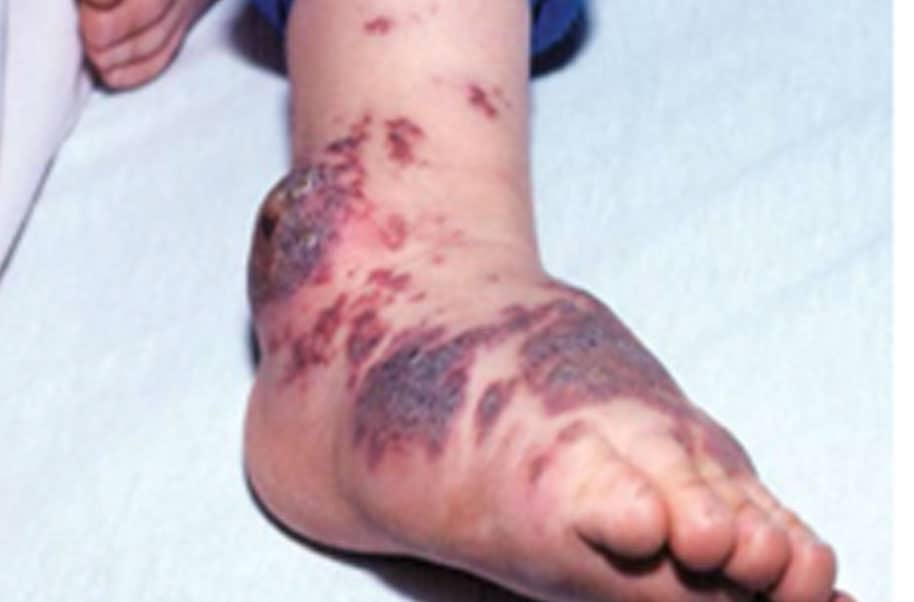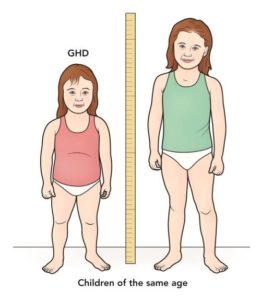Overview
The Klippel Trenaunay syndrome is an uncommon congenital disorder characterized by abnormal formation of blood vessels and/or lymph vessels. The syndrome is characterized by three features: a port-wine stain, aberrant overgrowth of soft tissues and bones, and abnormalities of the veins. This is not a curable disorder, however therapies can assist with symptom management.
Cause
The specific cause is now unknown. However, there are several hypotheses:
- Hypothesis 1: Intrauterine damage of sympathetic ganglia causing venous dilatation.
- Hypothesis 2: Deep vein abnormalities causing venous dilatation and hypertension.
- Hypothesis 3: It is caused by dysplasia of the mesoderm and ectoderm.
Genetics
In certain cases of Klippel–Trenaunay syndrome, PIK3CA gene mutations have been discovered. PIK3CA encodes a subunit of the cell proliferation and migration-related phosphoinositide 3-kinase enzyme. Bone, soft tissue, and blood vessel hypertrophy may result from mutations that provide a gain-of-function.

Symptoms
- Port-wine stain
- Vascular Malformation
- Hyperplasia of bone and connective tissue
- Lymphatic abnormalities
- Other conditions: KTS can also include cataracts, glaucoma, hip dislocation at birth, purple-red skin coloring when cold, syndactyly, polydactyly, oligodactyly, and blood-clotting problems.
Diagnosis
It is diagnosed by:
- A complete medical history and a physical assessment
- CAT scan
- MRI scan
- MR angiography
- Doppler USG
Treatment
- Anticoagulants
- Compression stockings
- Venous ablation
- LASER treatment
- Sclerotherapy
- Shoe lifts
- Venous surgery
How IQ is affected?
In most cases, the IQ is unaffected in Klippel-Trenaunay syndrome. However, when hemangiomas are present on the face (facial hemangiomatosis), there may also be hemangiomas in the brain, which can induce seizures or mental impairment. Such complications are thankfully uncommon in Klippel Trenaunay syndrome.
Prognosis
The prospects for KTS is uncertain. The illness is often associated with a normal lifetime, although treatment is essential. Internal bleeding can be a life-threatening consequence of KTS. Ongoing care with your healthcare professional can reduce your chance of developing these issues.



